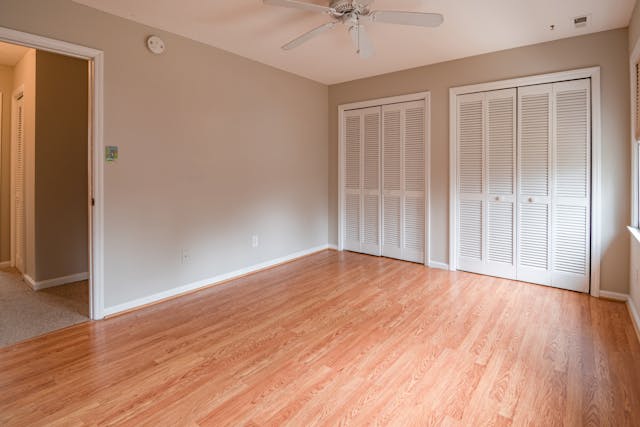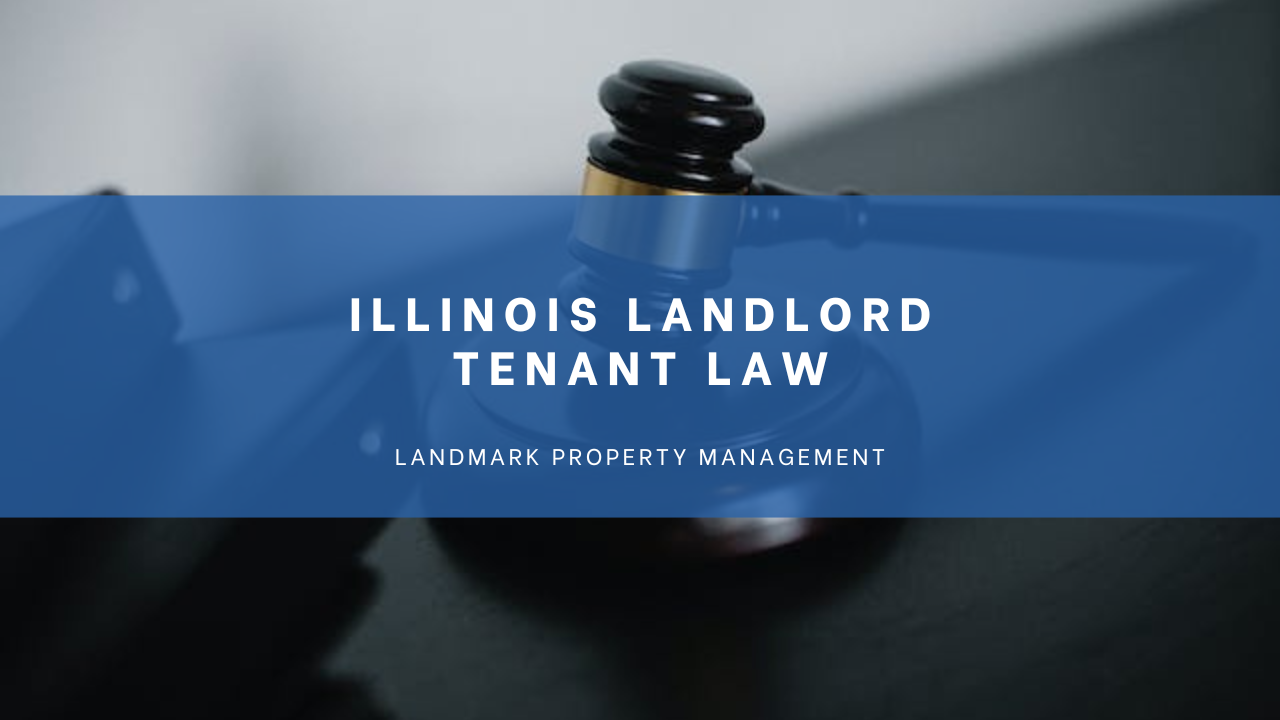Key Takeaways
As a landlord, it's important to be aware of landlord-tenant laws in your area.
A lack of knowledge on landlord-tenant laws could get you and your property in serious legal trouble.
Partnering with a property management team can ensure you’re always legally compliant.
The Illinois landlord-tenant law is contained under 765 ILCS 705-750. It automatically applies to landlords and residents after they have established a rental agreement between them. Under the Illinois landlord-tenant law, a rental agreement becomes legally binding if there is a written document, an oral agreement, or acceptance of payment as rent.
As a landlord, it’s essential to familiarize yourself with state law to achieve success. This can help you to discharge your duties effectively and avoid potential lawsuits.
In this blog by Landmark Property Management, you’ll learn all the important basics of the Illinois landlord-tenant laws. From each party’s rights and responsibilities, to basic overviews of important rules.
Required Landlord Disclosures in Illinois
Per the Illinois landlord-tenant law, you must disclose certain information to prospective residents before executing the lease. The mandatory disclosures include the following.
Concentrations of lead-based paint if renting out a home built before 1978.
A warning about the potential dangers of radon gas exposure. You must use a state-approved pamphlet.
Calculation of how tenants are going to share utility bills.
Information regarding the testing, maintenance, and compliance with the Carbon Monoxide Detector Act.
Testing, maintenance, and compliance with the state’s Smoke Detector Act.
Any concession for rent that you have granted in the lease agreement.
Disclosure of whether the area falls within a FEMA flood zone.

Illinois Tenant Rights & Responsibilities
Residents in Illinois automatically acquire the following rights under the 765 ILCS 705-750. A right to:
Be provided with a unit that is habitable and fit for living, and have repairs impacting the unit’s habitability made within 14 days after proper notification.
Remain in the unit until the landlord has obtained a court order to remove them from their rented premises.
Get a refund of the security deposit, or whatever portion remains, within 45 days after moving out.
Terminate a lease per the terms of the rental agreement.
Fair treatment regardless of having certain protected characteristics, such as race, religion, or nationality.
Proper notification before landlord entry.
Be charged a reasonable fee after late payment of rent.
Be provided with the aforementioned disclosures before execution of the lease.
As for the responsibilities, they include the following for Illinois residents.
Maintaining the unit’s cleanliness and sanitary standards.
Getting rid of any hazards that can impact the unit’s safety.
Fixing minor repairs.
Reporting maintenance issues to the landlord promptly.
Not causing disturbance in the neighborhood.
Using the unit for its intended purposes, such as sleeping, cooking, dining, and living.
Abiding by all terms of the lease, including paying rent when it becomes due.
Vacating the unit after the lease ends, unless the landlord extends it to another term.

Illinois Landlord Rights & Responsibilities
The following are some of the rights that landlords in Illinois have.
Evict a tenant who fails to honor a term of the lease, such as paying due rent.
Terminate the rental agreement after serving the resident with proper advance notice.
Enforce a term of the lease, such as charging a fee for late rent payment.
Charge a security deposit as part of the initial move-in cost.
Raise rent by whatever amount and as frequently as the lease allows.
Enter rented premises for purposes related to the lease.
Not to renew the term of the lease for another term after it expires.
As for the responsibilities, they include the following for Illinois landlords.
Ensure the unit is habitable and fit for living.
Draft a proper lease and enforce it fairly on all residents.
Respond to the resident’s repair requests within 14 days after receiving proper written notification.
Notify the resident in advance before terminating their periodic tenancy.
Abide by the Fair Housing Act in all landlording aspects.
Provide the resident with all mandatory disclosures.
Notify the resident before entering their rented unit to perform certain duties.
An Overview of the Landlord-Tenant Laws in Illinois
Landlord Entry
Unlike some other states, Illinois doesn’t have a statewide law defining landlord entry rules. However, some cities may have ordinances specifying rules that landlords must follow before and when accessing residents’ rented units.
Ensure you lay out reasonable rules in the lease to prevent potential landlord harassment claims. Define things like the minimum notice requirement, reasons for entry, and the expected time for entry.

Fair Housing Act
The anti-discriminatory law in Illinois prohibits discrimination in housing based on certain characteristics. The characteristics include: race, marital status, pregnancy, color, disability, and ancestry.
Failing to observe the Fair Housing Act in Illinois can have some financial consequences. If found guilty, you may face fines of up to $16,000 for a first violation.
Rent Increase Laws
Illinois is one of the states without a rent control law. Also, state law prohibits local cities and towns from creating their own rent control laws. Resultantly, there is no maximum limit on how much landlords can raise rent by.
But when doing so, you must ensure that it isn’t borne out of discrimination based on the resident’s protected class. Neither should be a retaliatory tactic after the resident exercises certain legal rights, such as forming a tenants’ union.
Tenant Evictions
These must conform to the Illinois tenant eviction process. From having a legitimate reason, to serving the proper eviction notice, to obtaining a court order, everything must follow the law.
Trying to use any method outside the confines of the law will fail. For example, trying to lock out the tenant or throw out their personal belongings.
Habitability
As a landlord in Illinois, you can only rent out a habitable home. The home should, at a minimum, not have issues like pest infestations, mold, structural issues, or malfunctioning electrical systems.
You must also make requested repairs promptly. State law specifically requires that landlords respond within 14 days of getting a written notice from a resident.
Conclusion
The only way to successfully rent out a property in Illinois is by staying legally compliant. And now you know what you can and cannot do once you establish a lease with a resident.
For expert help in managing your Chicago rental property, look no further than Landmark Property Management. Our full-service solutions can be custom-made to fit all your unique needs. Get in touch to learn more!






.png)


